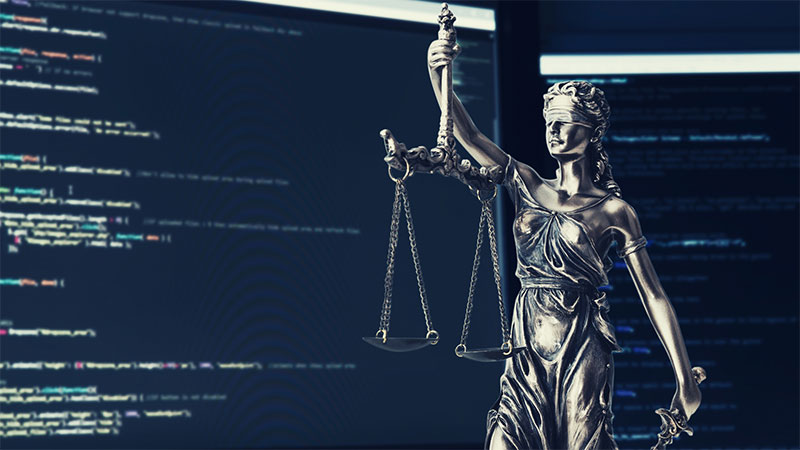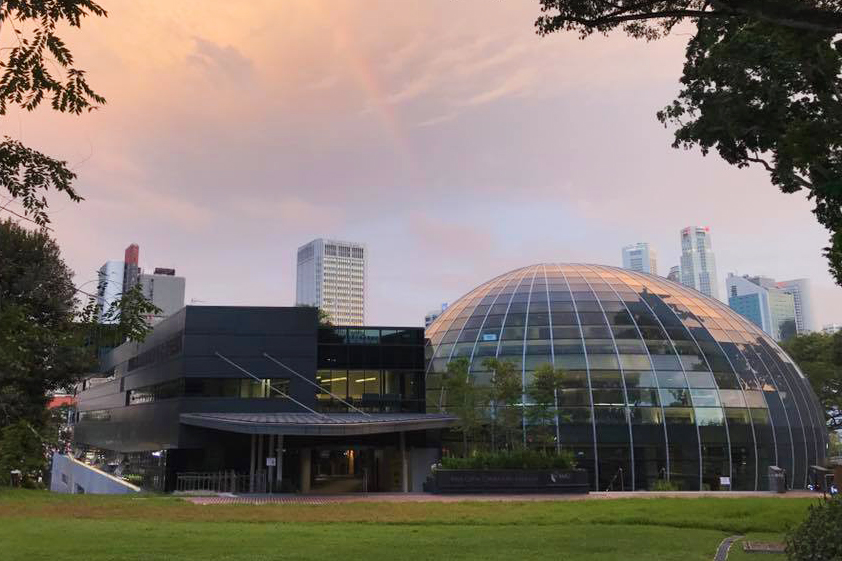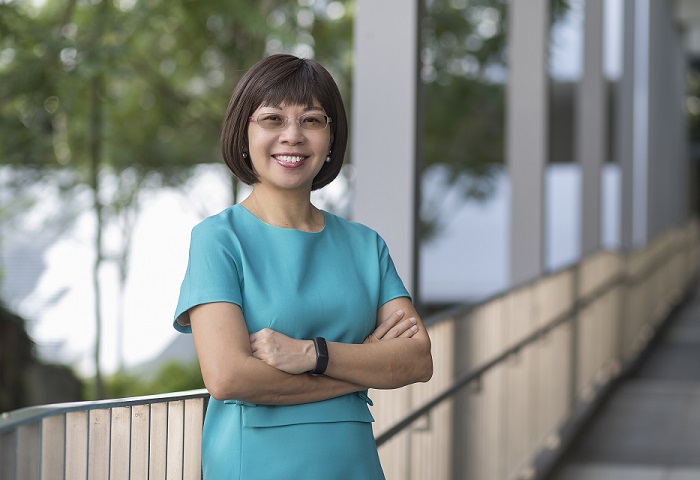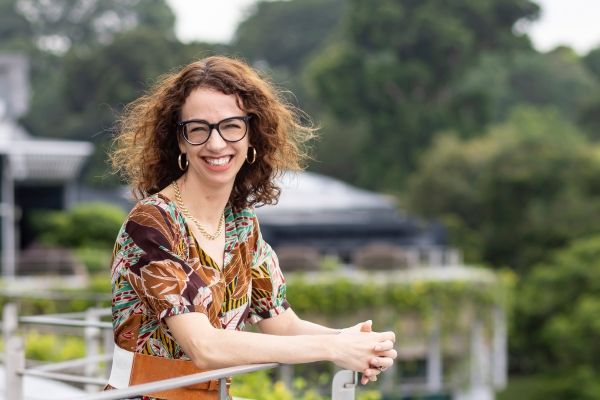OVERVIEW
The international experience of the Yong Pung How School of Law faculty members is reflected in their profiles and they hold postgraduate degrees from renowned universities worldwide such as Harvard and Oxford. The diversity in legal research and teaching is apparent from the list of global publications of the faculty and the spectrum of courses being offered in various areas of law.
In particular, our colleagues have amassed impressive publication records with articles in international journals including the Cambridge Law Journal, the Modern Law Review, the Oxford Journal of Legal Studies, the Journal of Contract Law, and the American Journal of Comparative Law, as well as textbooks on Singapore law that are widely cited by the judiciary and consulted by the profession.
All research related matters are handled by Dean, Professor Lee Pey Woan, and Associate Dean, Professor Maartje de Visser.
RESEARCH FOCUS
Research at the SMU Yong Pung How School of Law has a strong focus in three main inter-related areas which are in turn supported by the School’s nine Research Clusters, Research Centres and the Kwa Geok Choo Law Library.
The YPHSL is committed to acting as a thought leader in Law and Technology research. Its Centre for Digital Law (CDL), which consolidates and builds on the work of the previous Centre for AI and Data Governance (CAIDG) as well as the Centre for Computational Law (CCL), plays an instrumental role in this regard. The CDL has a proven track record in studying and publishing on range of aspects pertaining to law-and-technology, from the digital economy and society to computational legal studies. It is supported by an expansive network of international research affiliates, as well as a dynamic industry alliance. These partnerships enhance the Centre’s capacity to position Singapore and SMU as a leading global node for digital regulation and data governance research.
This institutional infrastructure is complemented by the individual work carried out by faculty in the Technology, Innovation and the Law Cluster, whose research engages with a range of pressing issues in the digital and regulatory domain.
In addition, the specialised PhD in Law, Commerce and Technology programme serves the important function of capacity-building in the law and technology space by nurturing the next generation of interdisciplinary academic talent in this domain.
The YPHSL aims to advance thinking about novel, comprehensive and sustainable pathways to address the complex of legal challenges implicated in fostering commercial growth in Asia, including the positioning of Singapore as a critical regional commercial hub. Our approach is inclusive and seeks to integrate insights from a range of legal domains, including private law, corporate law, insolvency and financial regulation, tax law, and international trade and economic law. Since 2014, the School’s Centre for Commercial Law in Asia (CCLA) has been instrumental in organizing and stewarding research related to this strategic focus. Its projects and activities include, among others, the Asian Corporate Law Forum, the Singapore Global Restructuring Initiative and the Singapore Tax Academy Research Initiative, all of which involve close and enduring partnerships with government, legal practice and scholars within Asia and beyond. Through the CCLA and linked research clusters, the YPHSL brings a strong Asian voice into contemporary conversations about the design and functioning of transnational commercial legal regimes in Singapore, the region and the world.
The YPHSL aims to position itself at the forefront of shaping the future of dispute resolution. In doing so, it deliberately conceives of dispute resolution broadly, as also encompassing a prominent place for negotiation and mediation, and considers the role of tools and techniques for resolving disputes in both commercial and non-commercial matters. The School’s efforts in this regard are led by the Singapore International Dispute Resolution Academy (SIDRA), which has been advancing practice-oriented research that informs legal and policy developments in dispute resolution since 2016. Through collaborations with local and international partners, SIDRA delivers meaningful training programmes and events, engages with industry stakeholders on law reform initiatives, and contributes to global discourse by identifying emerging trends. Its work is supported by the School’s Dispute Resolution Cluster as well as the Public Interest Cluster. Leveraging on the activities of SIDRA and those clusters, the YPHSL advances collective understandings of, and approaches to, modern modes of dispute resolution.
RESEARCH CLUSTER
Faculty and Researchers in the Yong Pung How School of Law pursue high-quality and leading research across a range of areas through our Research Clusters.
There are a total of 9 Research Clusters in the Yong Pung How School of Law.
RESEARCH CENTRES

Centre for Commercial Law In Asia (CCLA)
Director: Professor Dan W. Puchniak
Deputy Director: Assistant Professor Nydia Remolina Leon

Singapore International Dispute Resolution Academy (SIDRA)
Director: Professor Nadja Alexander
Deputy Director: Associate Professor Darius Chan

Director: Associate Professor Jason Grant Allen
Deputy Director: Associate Professor Liu Han-Wei
FIND OUT MORE
Faculty
YPHSL Faculty are actively involved in journal publications, conferences and policy-making and contribute in no small measure to the development of law in the courtrooms and within the legal profession
Research Publications
- SSRN SMU Yong Pung How School of Law Research Paper Series
- SMU Yong Pung How School of Law Research Collection (SMU Libraries InK)
Research Grants
The Yong Pung How School of Law Faculty have received numerous internal research grants as well as external grants on a competitive basis from agencies and entities such as the Singapore Ministry of Education (MOE) and Singapore Judicial College (SJC).
See all Research Grant Awardees
Other Research Updates
- View Annual Report
- School Research Reports for 2020 & 2019
- Visit our Facebook page for the latest updates
- Connect with us on LinkedIn for the latest updates
KWA GEOK CHOO LAW LIBRARY
OPENED 3 JANUARY 2017 | 2,200 SQUARE METRES ACROSS 3 LEVELS | 500 SEATING CAPACITY
To celebrate and honour the life of Madam Kwa Geok Choo, SMU has dedicated its Law Library to the memory of the late Madam Kwa Geok Choo.
SMU Libraries provides access to a wide range of electronic resources to support the School of Law’s teaching and learning, and its research interests and the work of its research centres.
Legally trained librarians offer a reference service, legal research programs and workshops on demand to SOL faculty, students and the SMU Community at large. Institutional Knowledge (InK) at SMU showcases the research and scholarly work of the SMU community.
The librarians provide research and publishing support to the faculty such as citation count, journal impact, author identification, publishing, rankings and statistical analysis of research publications. Law Research Navigator created and maintained by the librarians is an excellent starting point for legal research.

Like the Li Ka Shing Library, the Kwa Geok Choo Law Library has a Learning Commons which students, faculty and staff can access 24/7.











